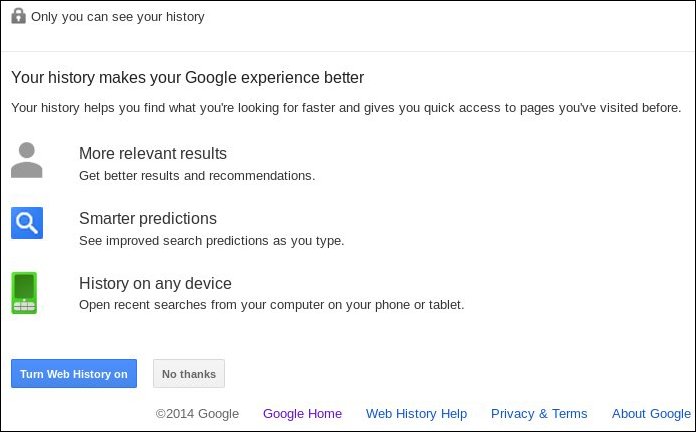| Previous
Page |
PCLinuxOS
Magazine |
PCLinuxOS |
Article List |
Disclaimer |
Next Page |
Have You Left a Trail Today? |
|
by Paul Arnote (parnote) Personally, I know there's hardly a day that goes by that I don't use an internet search engine -- usually Google -- to look up something. I'm betting you do the same. In fact, I'm betting that most people do the same. But, in your searching, did you leave a trail? Chances are good that you did, and you didn't even realize it. You almost certainly did if you logged into your "account" on a particular search engine. That is, unless you took precautions beforehand. Yahoo, Bing, Google and a whole host of other, smaller search engines collect your search data to help target the ads that they deliver to you. Your data is valuable. Not only to you, but also to those who are using it to target the ads delivered to you to include things you are interested in. After all, you are much more likely to buy something that's related to your interests than an item that's randomly served up. In fact, your search data contains some of the most private data about you. From it, they can ascertain your mood, your likes, your fears, your shopping habits, your travel plans, and a whole host of other information that you aren't that keen on sharing openly. What's unknown is how much of your search data is retained, and for how long. This is what makes this all so scary. Google makes it relatively easy -- the easiest of all the search engines -- to opt out of the collection of this data. Simply go to http://www.google.com/history. There, you can delete any or all of your search data history. You can also opt out of it, altogether, if you wish. Even though I have been "opted out" of Google's collection of my search data for a very long time, many users don't realize that this option exists. Below is what the Google page looks like. If you don't have your search history turned off (as I do), your options will be different.  Keep in mind that this doesn't eliminate ads from appearing. They will just be "less relevant" ... presuming they were relevant in the first place. Personally, I'd prefer no ads at all. In all of the years that I've used Google, I've never purchased anything based on an ad that was served up to me. Even when I had the history turned on (before I found out about this), the ads had little to no relevance to anything that I was interested in. Speaking of ads, you can also exert some control over the ads that Google serves up by going to http://google.com/settings/ads and adjusting your ads settings. You can also install a browser extension that opts you out of the DoubleClick cookie that Google uses. Bing is reported to have something similar, but nothing is evident on the Bing site without logging in. I won't be logging in, since I don't want or need an account on a search engine that I refuse to use (on account of it being a Microsoft site). Others have reported, though, that you can go to https://www.bing.com/profile/history to turn off and erase your search history. It has been reported that going to http://search.yahoo.com/preferences/ will allow you to turn off Yahoo!'s search history, but there is no way to erase your search history. Using one of my older, seldom used Yahoo! accounts, I was unable to find any way to turn off Yahoo!'s search history. Even without tracking your search history, search engines can -- and do -- make money off of serving up ads to you. Instead of basing them off of your search history, they can simply base the ads off of your current search words and phrases that you enter. DuckDuckGo does this, and they still make money from serving up ads to their search engine visitors. DuckDuckGo does not save your IP address, use cookies, or keep a database of search terms that can be directly linked back to you. IXQuick.com and StartPage operate in a similar way. So no, it's not necessary for Google, Bing and Yahoo! to save your personal search data in order to make money by serving up ads to you. Summary When you consider that Google "hosts" over 100 billion searches a month, we're talking about a wealth of user information being collected -- and stored for who knows how long -- that users typically don't realize that they are giving up. And that's only Google that we've used as an example. With the NSA, GCHQ and other government agencies -- and even governments themselves -- prying into the lives of private individuals without a warrant or cause, privacy concerns are as high as they have ever been. Now, we have corporations saving data about us, and it's data that may reveal things we're not willing to openly admit or own up to. The thing to keep in mind is that corporations exist to make money. Who knows how safe your data is. Everything has its price. We've seen companies, like Google has done on their founding principle of "do no harm," do an about face. The big search engines can tell me all they want that my data is safe, but I don't believe them. How long will it be before my search data is sold to the highest bidder? So ... have you left a trail today? |
